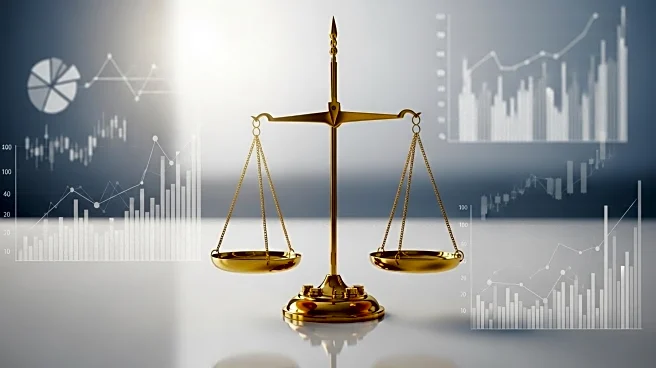What is the story about?
What's Happening?
The IRS has released its inflation-adjusted tax thresholds for the 2026 tax year, impacting over 60 tax provisions. Notable changes include an increase in the standard deduction for married couples filing jointly to $32,200, single filers to $16,100, and heads of household to $24,150. The top marginal tax rate remains at 37%, but income thresholds for tax brackets have shifted upward. Estate planning sees a significant change with the federal estate tax exclusion rising to $15 million. The employer-provided child care tax credit increases sharply, and the Earned Income Tax Credit for families with three or more children rises to a maximum of $8,231.
Why It's Important?
These tax changes are significant as they affect millions of Americans, influencing how much they can deduct, save, and claim on their taxes. The adjustments are expected to apply to all returns filed in 2027 for the 2026 tax year. The changes aim to provide relief to low- and moderate-income workers and enhance benefits for families and employers. The increase in standard deductions and tax credits could lead to more disposable income for taxpayers, potentially boosting consumer spending and economic growth.
What's Next?
Taxpayers will need to adjust their financial planning to accommodate these changes, which will be reflected in their 2027 tax filings. Employers may need to reassess their benefits packages in light of the increased child care tax credit. The IRS will continue to monitor inflation and economic conditions to determine future adjustments. Stakeholders, including tax professionals and financial advisors, will likely provide guidance to individuals and businesses on navigating these changes.
Beyond the Headlines
The adjustments reflect broader economic trends and legislative priorities, such as the One Big Beautiful Bill Act, which aims to provide tax relief and support for families. The changes may also influence political discourse around tax policy and economic inequality, as they highlight the government's role in addressing inflation and supporting vulnerable populations.

















